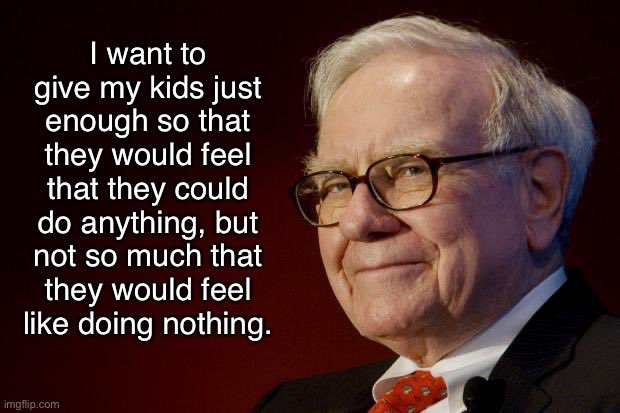
1/
I just listened to this wonderful episode of “Coffee With The Greats” — a conversation between @milesfisher, his dad, and Ajay Banga (the CEO of MasterCard, @Mastercard).
It’s packed with so many interesting nuggets — the threadaholic in me can’t resist summarizing them!
I just listened to this wonderful episode of “Coffee With The Greats” — a conversation between @milesfisher, his dad, and Ajay Banga (the CEO of MasterCard, @Mastercard).
It’s packed with so many interesting nuggets — the threadaholic in me can’t resist summarizing them!
2/
Key things Ajay learned from his parents.
From his mom: Constantly educate yourself and keep improving yourself so you can help others more.
From his dad: Connect with everyone. Learn from everyone. Find the humanity in everyone.
Key things Ajay learned from his parents.
From his mom: Constantly educate yourself and keep improving yourself so you can help others more.
From his dad: Connect with everyone. Learn from everyone. Find the humanity in everyone.
3/
It’s super important to have “alone time” to think.
Ajay tries to set aside the first 45 mins of each day (8:00am to 8:45am) — to read, think, envision the future, etc.
And he tries to not have back to back meetings. Gaps between meetings help digest information better.
It’s super important to have “alone time” to think.
Ajay tries to set aside the first 45 mins of each day (8:00am to 8:45am) — to read, think, envision the future, etc.
And he tries to not have back to back meetings. Gaps between meetings help digest information better.
4/
Commercial vs corporate aircraft.
Ajay prefers to fly commercial. This gives him time to think.
If he flew corporate, others’ll probably join him. He’ll be “trapped” with them for hours. They’ll try to hold discussions and make presentations and whatnot.
Commercial vs corporate aircraft.
Ajay prefers to fly commercial. This gives him time to think.
If he flew corporate, others’ll probably join him. He’ll be “trapped” with them for hours. They’ll try to hold discussions and make presentations and whatnot.
5/
To deeply connect, you need to spend quality time with people. And you can’t do that if your phone is constantly buzzing.
Ajay likes to leave his phone behind when meeting people:
“The company can run for a few hours without me. If not, I’ve done a poor job as a CEO.”
To deeply connect, you need to spend quality time with people. And you can’t do that if your phone is constantly buzzing.
Ajay likes to leave his phone behind when meeting people:
“The company can run for a few hours without me. If not, I’ve done a poor job as a CEO.”
6/
Ajay believes in management by walking around — or flying around, for companies like MasterCard.
He likes wandering around the office, having unstructured one on one conversations with people, discussing what they’re working on, things he should know more about, etc.
Ajay believes in management by walking around — or flying around, for companies like MasterCard.
He likes wandering around the office, having unstructured one on one conversations with people, discussing what they’re working on, things he should know more about, etc.
7/
It’s important to have a simple mission that everyone in the company is on board with — from the new guy who joined yesterday to the guy who’s been working there 25 years.
For MasterCard, this mission is to kill cash.
It’s important to have a simple mission that everyone in the company is on board with — from the new guy who joined yesterday to the guy who’s been working there 25 years.
For MasterCard, this mission is to kill cash.
8/
Ajay stresses 3 qualities: IQ, EQ, and DQ.
Everyone’s heard of IQ and EQ.
DQ — Decency Quotient — is equally important.
Be a decent person. Care about issues and people. At the end of the day, you should feel good about yourself when you go home and look in the mirror.
Ajay stresses 3 qualities: IQ, EQ, and DQ.
Everyone’s heard of IQ and EQ.
DQ — Decency Quotient — is equally important.
Be a decent person. Care about issues and people. At the end of the day, you should feel good about yourself when you go home and look in the mirror.
9/
CEOs should enable and delegate:
“CEOs do very little of any real work. They do a lot of vision setting, mission setting, and quacking. If you start doing, you’re going to cause a lot of trouble in the company, because most of the stuff you do is going to be wrong.”
CEOs should enable and delegate:
“CEOs do very little of any real work. They do a lot of vision setting, mission setting, and quacking. If you start doing, you’re going to cause a lot of trouble in the company, because most of the stuff you do is going to be wrong.”
10/
“If you’re feeling nervous about something, confront it. Go at it. And eventually you’ll find a pathway. In life, confronting an issue will find you solutions and give you confidence. Nervousness about the issue and not confronting it is a recipe to feeling completely lost.”
“If you’re feeling nervous about something, confront it. Go at it. And eventually you’ll find a pathway. In life, confronting an issue will find you solutions and give you confidence. Nervousness about the issue and not confronting it is a recipe to feeling completely lost.”
11/
It’s important to find time to do both directed and non-directed reading.
Directed reading is reading with a specific goal — to increase your knowledge of a particular topic.
Non-directed reading is more like wandering — finding interesting things via serendipity.
It’s important to find time to do both directed and non-directed reading.
Directed reading is reading with a specific goal — to increase your knowledge of a particular topic.
Non-directed reading is more like wandering — finding interesting things via serendipity.
12/
On parenting.
“You’re only as happy as your least happy child.”
Use your wealth to give your kids greater ability to take risks than what you had. But also teach them not to waste this opportunity.
This closely echoes Buffett:
On parenting.
“You’re only as happy as your least happy child.”
Use your wealth to give your kids greater ability to take risks than what you had. But also teach them not to waste this opportunity.
This closely echoes Buffett:

13/
The full episode is about an hour long. I definitely recommend listening to it in its entirety.
Link: pod.link/cwtg/episode/N…
/End
The full episode is about an hour long. I definitely recommend listening to it in its entirety.
Link: pod.link/cwtg/episode/N…
/End
• • •
Missing some Tweet in this thread? You can try to
force a refresh







